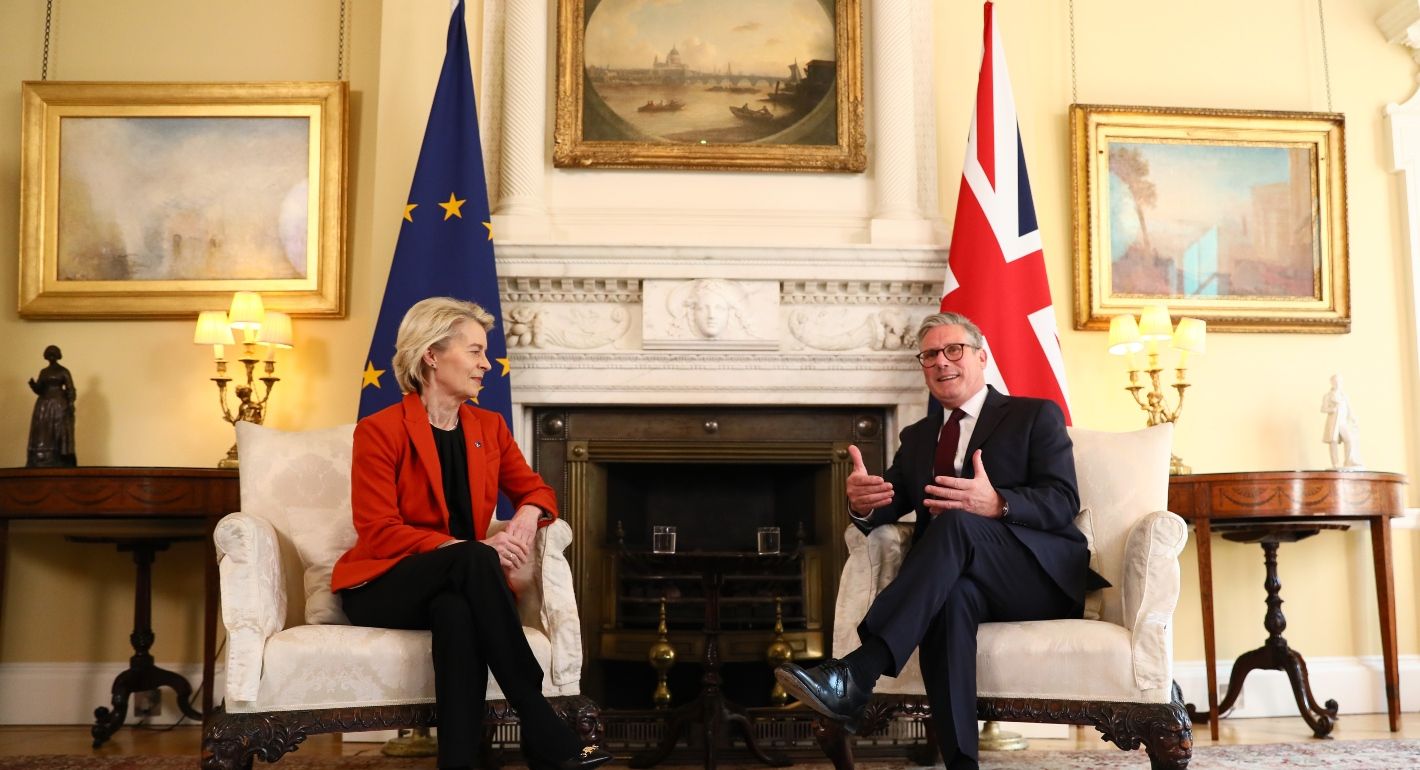
Britain is ready to reestablish its defense and trade relations with the EU
Britain is due to reach an agreement on Monday to reestablish its most important relationship with the European Union since Brexit. The agreement will focus on commerce and defense, with the goal of fostering economic growth and enhancing security on the continent.
When he agrees to deeper EU alignment at a summit in London, Prime Minister Keir Starmer, who supported staying in the EU, has wagered that obtaining real benefits for Britons will exceed any criticism of “Brexit betrayal” from detractors like Reform UK leader Nigel Farage.
Starmer will contend that since Britain’s exit from the bloc in 2020, the world has changed, and that a defense and security agreement at the center of the new beginning may allow British defense firms to participate in a $150 billion ($167 billion) effort to rearmament Europe.
The reset comes after Russia’s full-scale invasion of Ukraine and U.S. President Donald Trump’s disruption of the post-war international order, which compelled governments everywhere to reconsider their trade, defense, and security relations.
Earlier this month, Britain received some tariff relief from the United States and signed a complete trade agreement with India. Additionally, the EU has stepped up its efforts to strengthen ties with nations like Canada, Australia, Japan, and Singapore and to negotiate trade agreements with nations like India.
Ursula von der Leyen, the president of the European Commission, and Antonio Costa, the president of the European Council, were scheduled to arrive in London on Monday morning after negotiations between the two parties went into Sunday evening. The phrase “nothing is agreed until everything is agreed” was issued by an EU diplomat.
Among the topics being discussed, Britain hopes to significantly cut down on the paperwork and border checks that impede food and agricultural exports from the UK and the EU. Additionally, it would be quite popular for UK travelers to have faster e-gates at EU airports.
Britain might take part in the Erasmus+ student exchange program in exchange for agreeing to a limited youth mobility policy. One of the most sensitive topics during Brexit is fishing rights, which France also wants a long-term agreement on.
LIMITED MANOEUVRE ROOM
When Britain voted to exit the EU in a historic referendum in 2016, it exposed a deeply divided nation on issues ranging from economics and culture to migration and power sovereignty.
It damaged ties with Brussels and contributed to one of the most turbulent times in British political history, during which five prime ministers held power prior to Starmer’s arrival in July.
Most Britons now regret the vote, according to polls, but they do not wish to re-join. Farage, who has spent decades advocating for Brexit, is in the lead in British public surveys, which limits Starmer’s options.
However, Starmer was untarnished by the previous Brexit disputes, which helped to boost sentiment, and the prime minister and French President Emmanuel Macron have developed a strong bond over their support for Ukraine.
“BREAK THE TABOO”
Starmer’s pledge to stay out of the EU’s single market and customs union will limit the economic benefit, but he has tried to negotiate better market access in some areas, which is challenging given the EU’s opposition to “cherry picking” EU benefits without the responsibilities of membership.
In order to reduce food prices and boost the faltering economy, Starmer will probably contend that it is worth it for Britain to allow EU control of standards in order to remove red tape on the food trade.
Farage will also oppose the agreement to a longer-term fishing rights pact, and the opposition Conservative Party called Monday’s meeting the “surrender summit”.
To support farmers and small businesses, the government should “break the taboo” of embracing EU regulations, according to a trade specialist who has counseled politicians in Brussels and London.
Improved connections made sense in a more unstable globe, according to trade analysts, and Britain profited from the increased emphasis on defense, which made the agreement appear more reciprocal.
According to former UK government trade official Allie Renison of the consulting firm SEC Newgate, “trade disruption is so visible and considerable” that anything that eased trade tension with a nation’s largest trading partner made sense.
All Categories
Recent Posts
Tags
+13162306000
zoneyetu@yahoo.com


